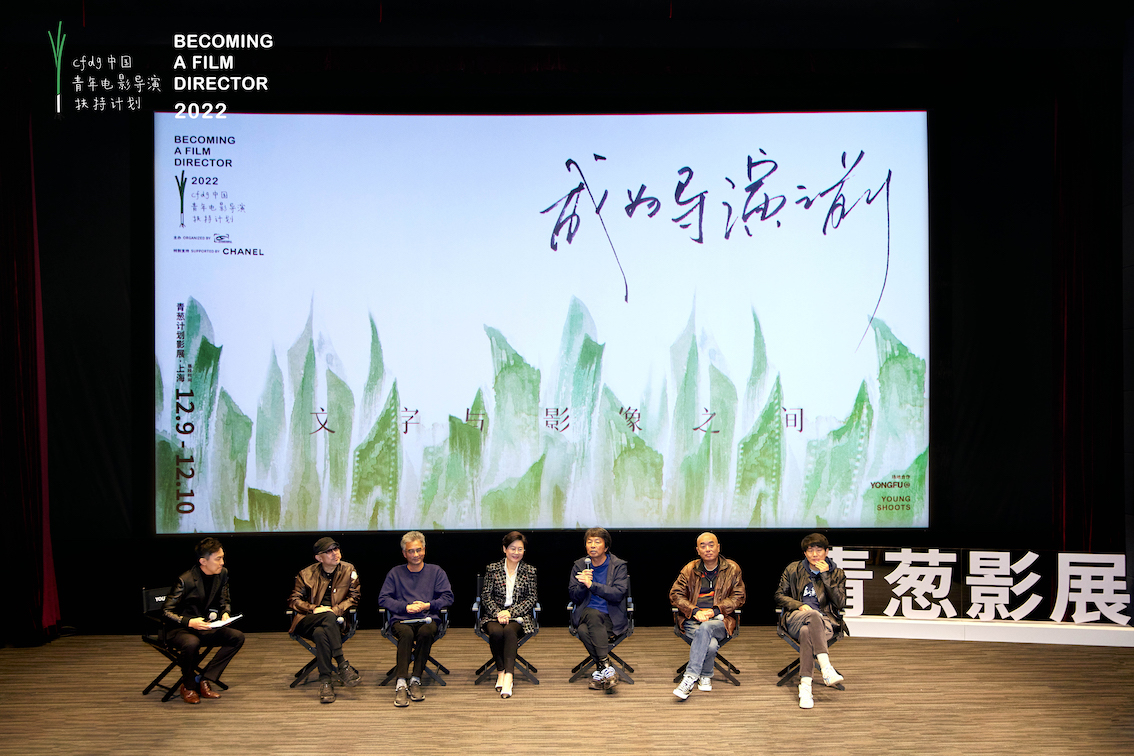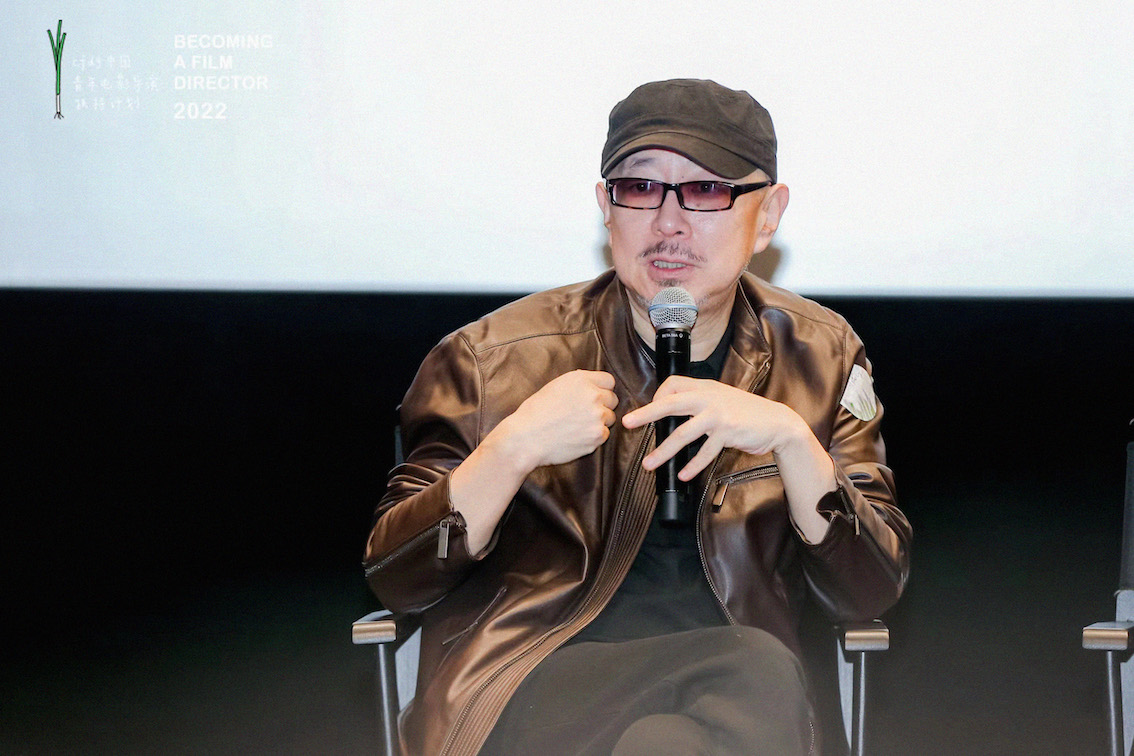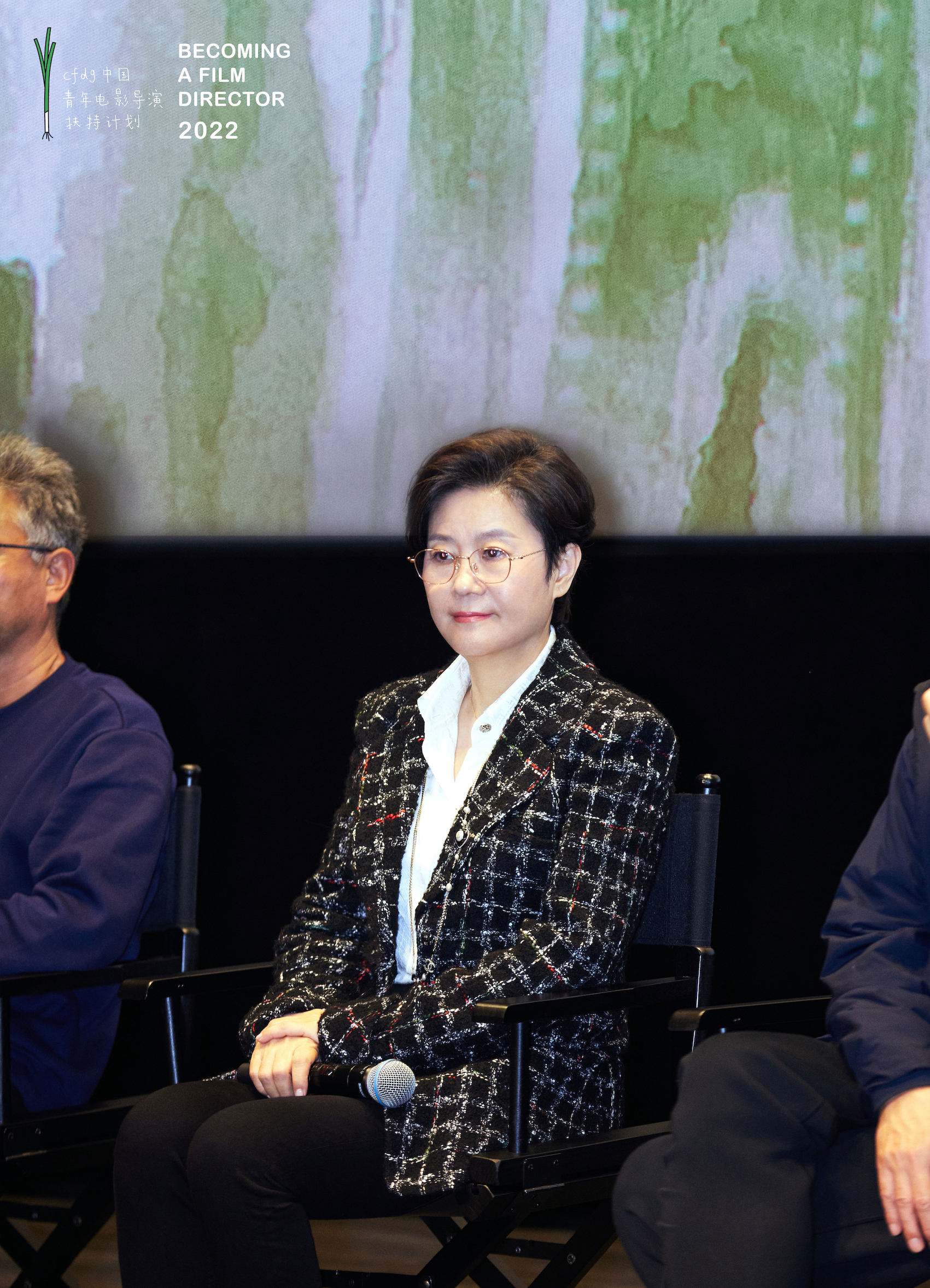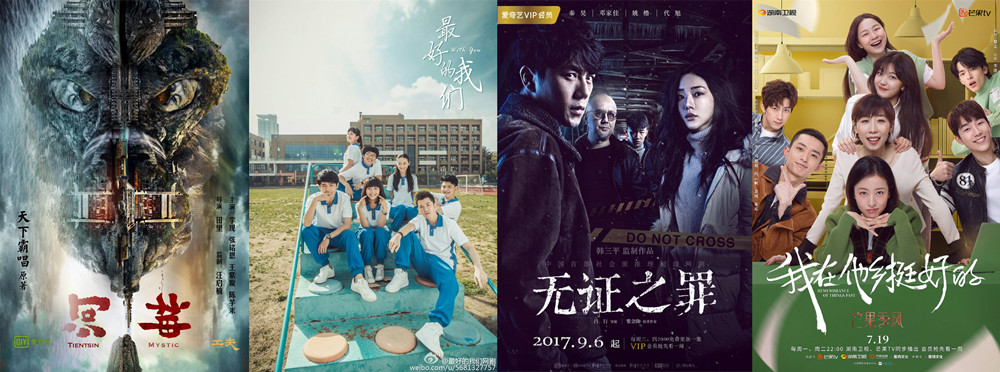
From the "green onion seedlings" planted seven years ago to now growing vigorously, whether it is the number of landed projects or the "survival rate" of the final film release, the "Scallion Project" initiated by the China Film Directors Association in 2015, It has become an important field for supporting and incubating youth films, and it has also become a "sample of the times" to record young film creators born in the 80s, 90s, and even the 2000s in China.
Over the past 7 years, "Shallot" has achieved impressive results. A total of more than 30 young directors who have won the million-dollar support fund from the National Film Bureau have been released. More than 20 feature-length debut films have been filmed, 6 of which have been screened in theaters, and 3 have been released online. Many of them won various awards at famous film festivals at home and abroad.
As a support channel dedicated to bringing young directors to the market, "Shallot" aims to tap potential young director talents, and conduct the whole industry chain of their excellent film projects from script, production, investment and financing, publicity and so on. support.

Event site
This year's "Green Onion Project" joined the film festival for the first time. From December 9th to 10th, the themed film festival "Before Becoming a Director - Between Words and Images" was held in Shanghai. Li Shaohong's 2005 work "Life and Death" kicked off the entire film festival, and Dege made "He and Royerdale" directed by Liang Ming, "Under the Sun" directed by Liang Ming, and "Rabbit Violence" directed by Shen Yu. The debut feature films of four green directors, including "Where to Grow" directed by Long Lingyun, were screened at the old factory site of Shanghai Film Group at No. 52 Yongfu Road. With the theme of "Between Words and Images", emerging directors have in-depth dialogues with masters in the field of Chinese film and literary creation, providing fresh and forward-looking creative inspiration for the future of film art and the industry.
In the exchange speech at the event site, Li Shaohong lamented that this year is the "most difficult period" in the seven years of the "Green Onion Project", which is obviously closely related to the current overall industry environment affected by the new crown epidemic. Under the "cold winter" when film production has been greatly reduced, theaters have been closed one after another, and the box office has fallen off a cliff, the situation faced by young creators and as a youth support platform is also worthy of attention.
Wang Hongwei, vice president of the China Film Directors Association and chairman of the Green Onion Project, once said at the Green Onion Venture Capital, "The Green Onion Project is not just a venture capital conference or a support plan. A look forward to the future of the industry." At present, this famous producer who often "hangs" in the "front row" of subtitles of many movies including "The Wandering Earth", "Crazy Alien" and "Returning Miles", is active all over the country Enthusiastic mentors on platforms of large and small youth film festivals and star professors from the Directing Department of Beijing Film Academy also gave their observations and thoughts on the situations faced by young creators.

Wang Hongwei
【dialogue】
"If you can't afford 100 million yuan, you won't even be able to shoot 10 million yuan."
The Paper: This year, we can clearly see that the number of debut novels and literary films on the market has decreased, and there are also many pessimistic voices in the industry. What is your observation and feeling when you are in it?
Wang Hongwei: All industries across the country will face similar situations. The notable change is that the number of young directors' debuts in the past two years, especially literary films, has indeed decreased. But to a certain extent, what is more serious is that the industry has been affected. The decline in the output and quality of commercial films supplied as products is greater than here. Especially in 2021 and 2022, there will be fewer films finished, so the entire market will really have insufficient reserves in 2023.
But two days ago I just met a well-known film selector. After staying in Beijing for two months, I asked him how many films you have watched, and he said that he had seen a lot of films at some film festivals. The epidemic has been going on for almost three years, and there are still movies to watch. At that time, you will sigh, after all, even in such a big country, there are still people making movies. We still have a unique environment, that is, we are a big country, and we have developed such a foundation in the past few decades. Although it is under the circumstances of the epidemic, the film that the film festival focuses on is a "skinny camel is better than a horse" big" state. Therefore, the status quo of the industry is not as pessimistic as imagined.

Event site
The Paper: When the market is not good, will the selection criteria and support mechanism for Green Onion, and even the functions undertaken by each venture capital platform change?
Wang Hongwei: The market downturn will definitely affect various venture capital platforms and festivals, and Green Onion is no exception. However, our mechanism has been to try our best to find resources to help them do it. Now under this situation, there is no way to make any adjustments. In the past few years, the creation of young people's debut works has not been as easy as everyone thought. It was originally "cooking without rice", so I just continued to do it.
Under such circumstances, our choice is still no matter what kind of project, or to choose the best from the completion of the script, feasibility, and the creative ability of the director. It cannot be said that because of this market situation, blindly choose projects with so-called commercial potential. If a certain project has more commercial potential, choose a commercial with 60 points instead of an art with 80 points.
The box office data of Lush's film is not too important. For the significance of this platform, what is more important is that more audiences can see it, and the industry can use this film to establish judgments and opinions on young directors. Confidence makes it possible for them to move forward.
The Paper: In recent years, many venture capital platforms of film festivals have cooperated with film and television companies in the society to set up some awards. At the same time, there are also some "appointment" in it. Now this part of the money has shrunk, and the choice of platforms will "narrow" "?
Wang Hongwei: Green Onion’s support funds come from the Film Bureau. With this money as a foundation, the rest is to directly find some main players in the market to invest in the production. That is to say, the directors' association, an industry group, and the film bureau, a state agency, are doing public welfare projects together. After the public welfare program is over, it becomes a market-oriented operation, and the project and director are approved by whichever company will do it.
So we have never had the so-called "title". We have also found some sponsors, but we will invest this part of the funds in the entire previous training process, including short film shooting and funding for all activities. It is true that this part of the past two years will have some impact on us, and everyone has no money. Then I can only suffer a little more and tighten my belt, but I still try my best to ensure the short film shooting of the students.
As for other domestic venture capital projects I participated in, in my observation, they were not forced to adjust their standards because of the environment. We will not deliberately do something because there is less money in the general environment, because we can see from a lot of experience that some commercial projects that are "looking" may not necessarily sell for money in the end. Some "symbolic" rewards in the past, such as 50,000 yuan and 100,000 yuan sponsored by some companies, did not play a substantive role in determining whether a movie could be made or not.

Li Shaohong
The Paper: When the entire environment changes, will young people have some advantages that are exclusive to them? For example, in the eyes of investors, they may be "cheaper"?
Wang Hongwei: Three to five years ago, their only advantage was that the Chinese market was very good, and there were a lot of films in demand. Chinese directors were indeed in short supply, and they were young. At that time, a director may only be over 40 years old and shoot two or three films, but if he is not particularly successful, investors may rather turn around and find a newcomer in his 20s than bet against you. Newcomers may not be so stable, but there is also a probability that they will be able to shoot a blockbuster. In a bubble era, or an era of rapid development, young people and they have not yet made films, this is an advantage. But when the industry is in decline, this logic will be reversed. Investors would rather not bet on the "explosive money", but need to be relatively safe.
The logic of the so-called "cheap" is also difficult to establish in my opinion. This is not a concept of "reducing consumption", saying that there is not so much big investment, let's make some cheap movies. In the past, it cost one or two hundred million yuan, but now it is cheaper than ten million to twenty million yuan. If you can't afford to eat 100 meals, you still have to eat 50, and all entertainment industries don't just need it. If I can’t afford 100 million, I won’t even shoot 10 million; if I shoot 100 million, no one will watch it, but if I shoot 10 million, will anyone watch it? No one even watches the good-looking ones, so if you shoot an ugly one, will anyone watch it? The smaller the plate is not because the cost of the movies on the plate has been reduced proportionally, but that most projects have not been put into production directly.
If the industry has a clear demand, the transfer of talents will be a matter of course
The Paper: This film festival also reported the achievements of Qing Cong, among which several films were directly streamed, what do you think of this part of the "diversion"?
Wang Hongwei: Streaming media is not only a problem for us, but the whole industry is facing a problem, but this is still determined by the relationship between market supply and demand. If they have a particularly clear need, which is the lack of people, you need to send talents, whether it is the film education industry or the industry, and this will happen naturally.
Two years ago we made a joke, saying that we were going to change the name of the Film Academy to "Beijing Internet Drama Academy". Starting from Liu Chang's "The Best of Us", including Lu Xing ("Undocumented Crime"), Tian Li ("River God"), Desert ("Hello, Old Time"), Li Mo ("I'm in a Foreign Land") pretty good")……

Excellent works of "Beijing Internet Drama Academy"
This group is all directors of online dramas with a score of 8 or above, and the time they are facing is indeed a few years after graduation. It is not your turn to make movies, but you have to survive. There is room for them to play in the dramas. just go. The talents used in this wave of web dramas are the talents cultivated according to the goals of our film directors, but they brought up the first batch of Chinese web dramas.
Therefore, as long as the needs of the industry are clear, the path of support from the education sector and our industry will naturally occur. Streaming media as a movie playback port is a reality we have to face. Maybe in the future, a lot of movies will be watched on the Internet. Anyway, I personally don’t have that paranoia.
The Paper: Today on the forum, everyone discussed the issue of literariness in film creation. The literariness in the films of past generations of directors was a very important issue. Nowadays, young people are growing up in an environment of fragmented reading and short video viewing. In the rising generation, will the literary literacy of young creators be different in your observation?
Wang Hongwei: From the point of view of the director of Green Onion, I don't think this problem exists. Because he has gone through a series of screenings, not only the literacy of literature, but also the literacy of other art media, social humanities, etc. will be reflected in your creation. What we are talking about now is the generation influenced by fragmented reading and short streaming media. This may be aimed at the audience and audience level, and the impact on the creative level is not so great. Including the education in our school, these people are selected by a set of examination selection mechanism. If you just watch some so-called short videos or official accounts and grow up, you will not be able to pass the exam in the end.
The Paper: Does the group of directors selected by such a screening mechanism mean that they themselves still represent a more elite creative direction? So will there be a disconnect with the audience cultivated by fragmented reading and streaming short videos mentioned above?
Wang Hongwei: In fact, the selection mechanism of green onion and the teaching tradition of our school are still relatively elitist. If elitism can maintain its advantages in maintaining tradition, of course it may have side effects, that is, it is not sensitive enough to new things. So what I personally hope to appear is that this child has enough foundation in ideology and reading, and at the same time his image consciousness is new. When he started to enter the film industry, he was able to carry the self-conscious positive influence of the streaming media era and the era of short online videos. Precisely such children do not yet exist. When our generation of students came up, you can see that when he conceived and photographed things, he was still relatively traditional.
But the film school, what we do is still a basic education. If you lay the foundation well, you can do whatever you want to do in the future. We have a class called film reading, which is to teach students to watch movies from a professional perspective. Every class I end with the work of "Shenlong Snickers" (short video UP master). I think he may be the best video author in contemporary China in terms of film and image sense. He is not a director. He edits with real video on the Internet, but he is an author. His authorship may be better than 99% of Chinese movies are strong. If you can read it, you probably understand what the movie is. At the same time, I will also tell my students that I am so old, my students should tell me something new.
The Paper: From the perspective of a teacher, do you observe that the film education process experienced by the film school students in the past three years, as well as their expectations and mentality for the future, will there be some differences?
Wang Hongwei: Movies are indeed difficult to teach online. We have a lot of things to shoot. In the undergraduate class I led this semester, I still tried every means to make them insist on filming, and not to sit and chat and do so-called theoretical study. Our school and our department have used the greatest efforts during the three years of the epidemic to ensure that we teach according to our traditional offline teaching methods.
In terms of mentality, the teacher will instill a truth, that is, when you come out, don’t think that you will be able to make your first feature film in two or three years, or that you will be able to do something. It is realistic and reasonable for undergraduates to make a 5- to 10-year plan, and for graduate students to make a 3- to 8-year plan. This kind of atmosphere has been in our department for a long time, so if it is a child who graduated from our school, especially if he really grew up in our department, don't be so anxious. It may be the dream of many people to shoot the first feature film at the age of 25 or 6, but it is a very rare case in the history of world film. Of course, they also listen to "Bomi", laugh at themselves, and have their attitudes and judgments, but the creation and art of movies have their own particularities, and often depend on specific individuals.
The Paper: But it is true that in the past few years China had many platforms and capital that provided many opportunities. Many post-90s and even post-00s directors were able to complete their debut works at a very young age. After experiencing that kind of "blowout", what kind of adjustments should young directors make now?
Wang Hongwei: When many young directors come to me with this script and project, anyway, I will definitely persuade them that you should not be in a hurry in the past two years, and you should not be in a hurry to set a "timeline" for yourself. It may not be realistic to finish the script this year, find money next year, and start the business the year after. Indeed, due to such a big environment, it is very difficult for young directors to find investment. This is a reality. But we don't know how fast the industry will recover. China's characteristics often have the kind of industry that recovers, and there may be a group of people and money inexplicably. The speed of the turn will surprise everyone, maybe Now everyone says that we are a very poor industry, and when it suddenly catches its breath, the speed of running again will be amazing. So I just ask them to be more cautious, don't worry, and don't be too pessimistic.
Young filmmakers should be placed at the crossroads where thousands of people pass by
The Paper: As a support platform led by the Directors Association, in the future film market, is it possible for directors trained by Green Green to become a relatively special reserve force?
Wang Hongwei: This is a direction that has been noticed from the very beginning when the Directors Association was designing Green Onion, so what we have always emphasized is that it is such a concept as a supplementary blood for the future mainstream film director team. At the same time, we emphasize that we are the first feature film for theaters as a director. That is to say, Shallot has a very clear mainstream concept from the very beginning. We hope that most of this batch of directors in the future will really enter the industry under the two labels of mainstream and cinema. In the past few years of implementing such a standard, we have also seen that basically these directors will reach a water mark in terms of art and professional standards, start above the standard line, and enter a mainstream market.
The Paper: According to your observation, whether you have been to the theater or not, what kind of difference will this matter have in terms of impact on the director?
Wang Hongwei: From such an action and such an indicator, the creators will realize a standard, which ranges from the review of the film to the audience's arrival rate. A lot can be understood through a film. There are many directors in China who have made many films and participated in many film festivals and won applause and awards, but ordinary audiences have never heard of them. This is a category in movies. The theater chain's understanding of a director's industry and what the industry is like is completely different from the starting point.
We didn’t say which people to screen deliberately at the beginning, we looked at the project and your director’s ability, and directors in their 20s and 30s, no one would have already made up their minds about my whole life before making their first movie. which way to go. So maybe if he hadn’t entered Green Onion, he would have gone to other places, and he might have become any director, but after he came in, we rushed to the direction of getting the bid and going to commercial theaters, and let as many people as possible see you, Then they have to consider various factors. As soon as this action occurs, his consciousness, his judgment and frame of reference begin to be established. But some directors are unwilling to admit it, and some directors will admit it very frankly. A director who grew up by going to film festivals and a director who throws a movie to theaters to watch box office data every day are indeed two completely different styles.
For example, these young directors are placed at an intersection where tens of thousands of people may pass by. If you sell oranges here, it depends on whether you can sell oranges to 100 people or 1 person, but the important thing is that you He has to be placed at this intersection, not in that alley where no one walks at all. Some people choose to hide in alleys, that is his choice. But once you put it behind, it will have an impact on his future work in the industry. Chinese films also need more young people passing through this intersection.

"The Way Back" and "The Wandering Earth"
The Paper: You also have an identity as a film producer and consultant. When faced with "explosive hits" such as "The Wandering Earth" and "The Way Back", and young directors' literary films, what specific problems will you face? different? Is the "explosion" foreshadowed in advance?
Wang Hongwei: I think there are two main dimensions to judge whether a work can be successful, one is the director and the other is the project. If Rao Xiaozhi hadn't been the director of "The Journey of Thousand Miles", the result might be completely different from what it is now. There are also projects that are more important. But for me, there is actually no difference in doing all the things. I take a student to shoot a homework for a few minutes, and I help a green project as a producer, and I help a literary film in the industry as a producer. , or to make a so-called "blockbuster" with the main theme, or to make a "popular" movie in other people's mouths, there is really no difference. To me, it is all about making movies, no matter if it is three minutes or a few minutes. Billion, its underlying laws and logic are exactly the same. It’s just that maybe because I’m involved in a lot of things, you can figure out what you want to focus on in this project, what the movie is about, and then make use of your strengths and avoid weaknesses.
The Paper: You made a "famous statement" before, saying that there are too many venture capital activities in China, and they should be cut in half. Has this view changed now?
Wang Hongwei: I actually don’t quite remember the context in which the words were said. I guess it might be 2019. Now that three years have passed, it should indeed have been reduced by half. Let us cherish the space that still exists for the remaining platforms and try our best to keep them alive.


